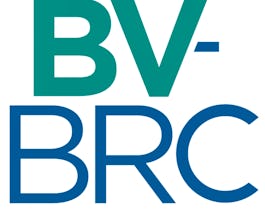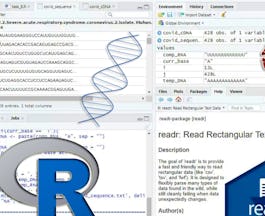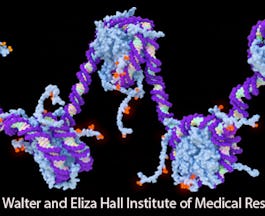Filter by
The language used throughout the course, in both instruction and assessments.
260 results for "genomics"

Johns Hopkins University
 Status: Free
Status: FreeUniversity of Virginia
Skills you'll gain: Bioinformatics, Data Analysis

Coursera Project Network
Skills you'll gain: R Programming, Computer Programming
 Status: Free
Status: FreeUniversity of Geneva

University of California San Diego
Skills you'll gain: Bioinformatics
 Status: Free
Status: FreeThe University of Melbourne

University of Toronto
Skills you'll gain: Bioinformatics, Probability & Statistics

University of California San Diego
Skills you'll gain: Bioinformatics

University of Toronto
Skills you'll gain: Bioinformatics, Probability & Statistics
 Status: Free
Status: FreePeking University
Skills you'll gain: Bioinformatics

University of California San Diego
Skills you'll gain: Algorithms, Bioinformatics, Computer Programming, Computational Thinking, Theoretical Computer Science, Python Programming
 Status: Free
Status: FreeUniversity of Geneva
Searches related to genomics
In summary, here are 10 of our most popular genomics courses
- Cancer Biology: Johns Hopkins University
- Bacterial Bioinformatics: University of Virginia
- Reverse and complement nucleic acid sequences (DNA, RNA) using R: Coursera Project Network
- Classical papers in molecular genetics: University of Geneva
- Comparing Genes, Proteins, and Genomes (Bioinformatics III): University of California San Diego
- Epigenetic Control of Gene Expression: The University of Melbourne
- Plant Bioinformatic Methods: University of Toronto
- Applied Bioinformatics: University of California San Diego
- Bioinformatic Methods I: University of Toronto
- Bioinformatics: Introduction and Methods 生物信息学: 导论与方法: Peking University










